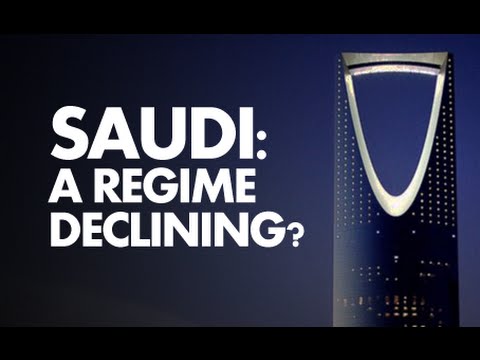Alwaght- Saudi Arabia is facing its worst economic crisis coupled with simmering internal dissent, erroneous oil policies, a military quagmire in Yemen and dismal failure of its objectives in backing terrorists in Syria.
The beleaguered Saudi regime is trying to significantly cut spending amid low crude oil prices by slashing ministers' salaries by 20 percent while abolishing public sector perks.
"The cabinet has decided to stop and cancel some bonuses and financial benefits," reported the state TV channel Ekhbariya. Government employees make up two-thirds of working Saudis.
Housing and car allowances will be reduced by 15 percent. Overtime bonuses have been slashed by 25-50 percent of basic salaries, and vacations shouldn’t be more than 30 days. The exceptions are soldiers fighting in Yemen.
The regime in Riyadh is trying to reduce the budget deficit which last year it reached nearly $100 billion. It cut subsidies for power and water last December, then sacked the minister responsible following a public outcry over how the new water tariffs were applied.
The world’s biggest oil exporter has already delayed payments owed to contractors and started cutting fuel subsidies as it tries to manage lower oil prices. The budget deficit may narrow to 13 percent of gross domestic product this year and below 10 percent in 2017, according to International Monetary Fund estimates.
Meanwhile, hundreds of Pakistani construction workers are to fly home from Saudi Arabia this week but without the salaries they have waited months to receive.
They are among more than 6,500 Pakistanis who, he said, have not been paid by the construction giant for that past eight or nine months.
Large contingents of Filipinos and Indians have also gone months without pay from Saudi Oger, which is led by Lebanon's billionaire former premier Saad Hariri, a staunch ally of Saudi rulers. King Fahd Quran Printing Complex in Madinah has reportedly served more than 1,300 Saudi Oger contract workers termination notices. The notice was effective from September 3 and affected employees that had been working with the complex for years, the Saudi Gazette said.
Elsewhere, Hundreds of angry laborers in Saudi Arabia, not paid for months, have staged a protest in Eastern Province.
The poorly managed oil-rich kingdom employs millions of foreign workers in various sectors. But facing a cash crunch, fueled by the steep fall in oil prices as well as the costly military offensive against Yemen and support for terrorists in Syria, it has been unable to pay a large number of foreign staff for months.
The Saudi regime is unable to pay wages while the country’s troops stuck in Yemeni war quagmire are paid promptly. The aggression on Yemen is proving costly to the Saudi regime and might be its Achilles hill.
Riyadh Losses Oil War to Tehran
The Saudi regime is set to face more hard times ahead after losing a protracted oil war with the Islamic Republic of Iran.
Over the last two years, the Saudi regime has been overproducing oil thus leading to a steep drop in global prices. The objective was to hurt Iran and prevent the Islamic Republic from reaping benefits of the lifting of sanctions following the 2015 nuclear deal.
The regime in Riyadh has lost the oil war and is feeling the heat from low oil prices thus prompting a U-Turn.
According to initial reports, OPEC agreed on Wednesday to cut its oil output for the first time since 2008, with the Saudi Arabia dropping its demands on Iran amid mounting pressure from low oil prices.
Two sources in the Organization of the Petroleum Exporting Countries said the group would reduce output to 32.5 million barrels per day from current production of 33.24 million bpd.
Bloomberg reported a shift in Saudi policy. The publication noted that Saudi Arabia "signaled for the first time it may be compelled accept the idea that Iran keep output at maximum levels."
More Bad News for Riyadh
US president Barack Obama suffered a blow on Wednesday, when the US Congress overturned his veto of a bill that would allow families of the victims of the September 11 terrorist attacks to sue Saudi Arabia.
Sources say Saudi’s first international bond may be delayed following the legislation by Congress. Riyadh is planning to sell at least $10 billion of bonds next month. The regime plans to use proceeds from the international bond sale to help fund an economic transformation plan and plug a budget shortfall caused by the slump in oil prices.
International Monetary Fund (IMF) says Saudi Arabia, will suffer a fiscal deficit equal to 13.5 percent of its GDP this year. On the other hand, Iran which Saudis have been working hard to undermin, will suffer a fiscal deficit equal to just 2.5 percent of its GDP. The IMF added that Saudi Arabia needs to sell oil close to $67 a barrel to erase any deficit while prices currently stand at around $ 47.
The current austerity measures implemented by the Saudi regime have led to simmering internal dissent. Saudi social media have been recalling past prosperity with many saying the kingdom is back to the time of poverty.



























